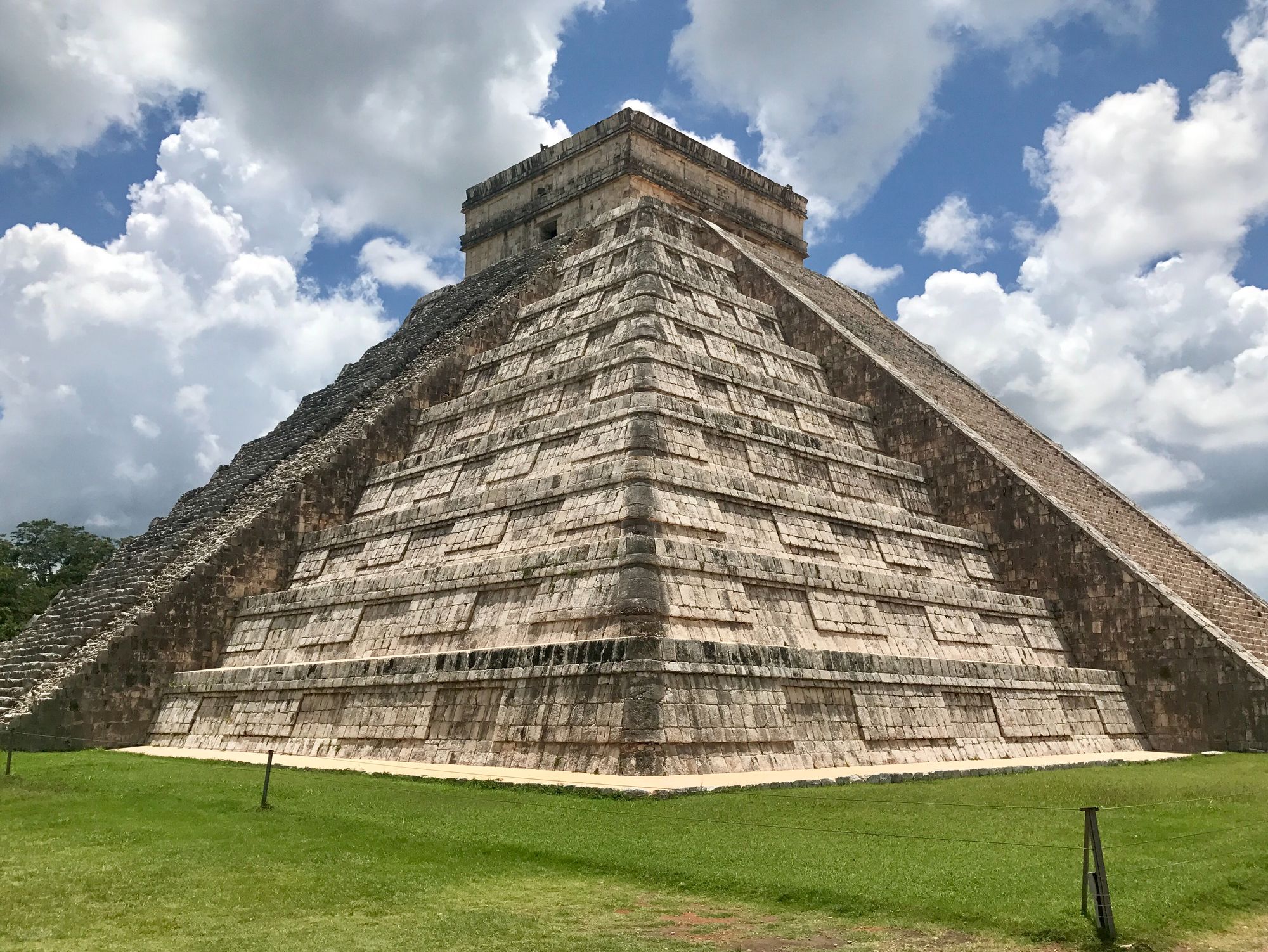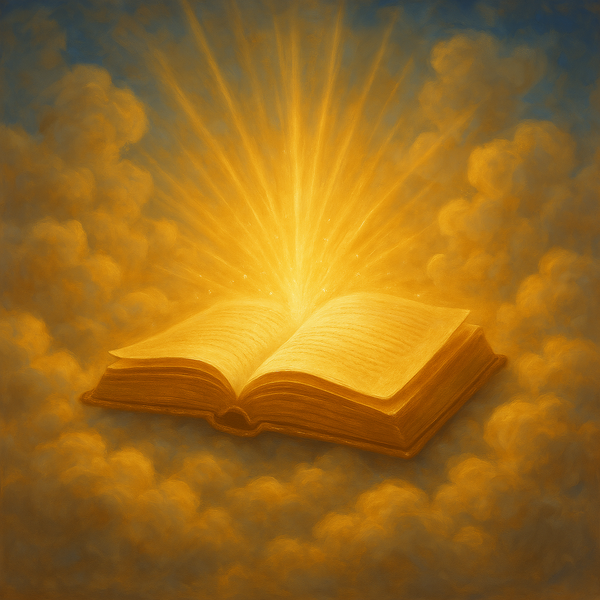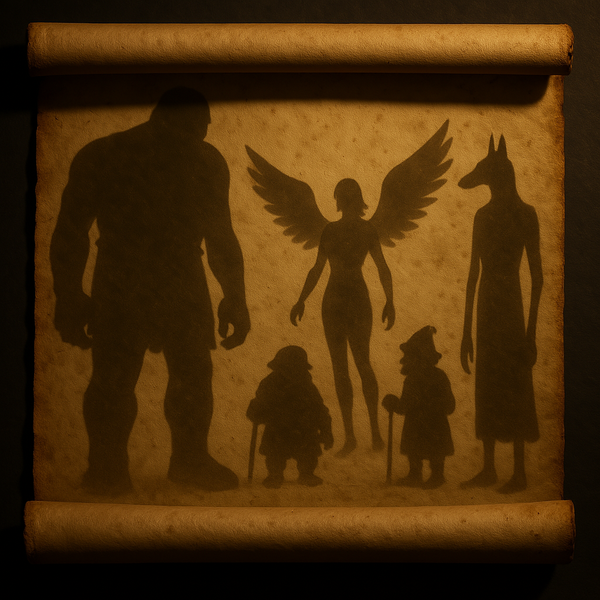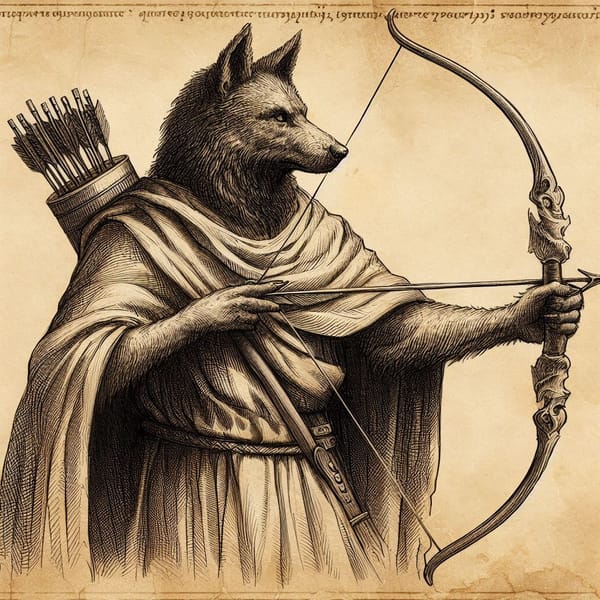The real reason for the flood

Have you ever wondered why the Bible says God destroyed the world and almost everyone in it? How is it that God could do such a thing, and so early on in the history of mankind? Like many things, the answer is more fantastical than most people are comfortable with.
To find these answers, we make our way to Genesis chapter 6, which ushers in the story of the flood. In order to tell the story correctly, it starts with the heart of the problem.
Genesis 6:1-3
Now it came about, when men began to multiply on the face of the land, and daughters were born to them, 2 that the sons of God saw that the daughters of men were beautiful; and they took wives for themselves, whomever they chose. 3 Then the Lord said, “My Spirit shall not strive with man forever, because he also is flesh; nevertheless his days shall be one hundred and twenty years.”

Of all the things they could say, the author chose to start the story of the flood with the story of how the Nephilim (half-angel and human beings) were born. It tells us that what follows is God proclaiming the 120-year count down to destruction. But why? As it turns out, the origin story of the Nephilim and the legend of the great flood (both world-renowned tales throughout time) are inextricably woven together. These are not separate stories, and the Bible makes no attempt to tell them as such.
Genesis 6:4
The Nephilim were on the earth in those days, and also afterward, when the sons of God came in to the daughters of men, and they bore children to them. Those were the mighty men who were of old, men of renown.
So who are the Nephilim? The author tells us. They were the mighty men of old. The men of renown. They were the heroes of ancient days. The demi-gods. By definition, a demi-god is born of a god and a human woman.

Verse 1 starts by telling us that the sons of God took human women as wives. Verse 4 tells us that they bore the Nephilim. The sons of God is a phrase the Bible uses many times, and in the old testament, it is used exclusively to refer to what we call angels. Every ancient civilization has its version of the origin story of the demi-gods. These were the men of renown. The Bible, however, tells the story differently. These demi-gods were not heroes, they were villains.
Genesis 6:5-7
Then the Lord saw that the wickedness of man was great on the earth, and that every intent of the thoughts of his heart was only evil continually. 6 The Lord was sorry that He had made man on the earth, and He was grieved in His heart. 7 The Lord said, “I will blot out man whom I have created from the face of the land, from man to animals to creeping things and to birds of the sky; for I am sorry that I have made them.”
The Nephilim, like their fathers, opposed the one, true God. Their opposition lead humanity to a place of such deep wickedness and depravity that God saw none left fit to rule the world He made in the way He had created them to. None that is, except for Noah.
Genesis 6:8-10
But Noah found favor in the eyes of the Lord. 9 These are the records of the generations of Noah. Noah was a righteous man, blameless in his time; Noah walked with God. 10 Noah became the father of three sons: Shem, Ham, and Japheth.
Noah was the last godly man alive, aside from his sons. He was also the first descendent of Seth to have never met either him or Adam, the first human being.

Genesis 6:11
Now the earth was corrupt in the sight of God, and the earth was filled with violence.
Noah grew up in a world where Nephilim (demi-gods) had been waging war and violence for hundreds of years, a horrifying display that Adam would have watched for a little less than half his lifetime. Adam lived for 930 years, but Noah proceeded to live longer than all but 2 of his ancestors: Jared (meaning to descend), whose birth marked the time period when the first Nephilim were born (according to extra-biblical Jewish texts), and Methuselah whose death marked the year of the flood. This flood would cleanse the world of the evil that befell it, the wickedness of man and the gods they served.
Genesis 6:12-13
God looked on the earth, and behold, it was corrupt; for all flesh had corrupted their way upon the earth. 13 Then God said to Noah, “The end of all flesh has come before Me; for the earth is filled with violence because of them; and behold, I am about to destroy them with the earth.
Genesis 6 makes a point of specifying that all flesh was corrupted. We saw it in verse 7 previously:
Genesis 6:7
The Lord said, “I will blot out man whom I have created from the face of the land, from man to animals to creeping things and to birds of the sky; for I am sorry that I have made them.”
Genesis 6:7 goes as far as to specify the different types of living creatures, leaving no room for speculation on whether or not it included animals. We see all flesh mentioned again in verse 17:
Genesis 6:17
Behold, I, even I am bringing the flood of water upon the earth, to destroy all flesh in which is the breath of life, from under heaven; everything that is on the earth shall perish.
Even Genesis 7 echos this statement, clarifying the finality of the situation:
Genesis 7:21-23
All flesh that moved on the earth perished, birds and cattle and beasts and every swarming thing that swarms upon the earth, and all mankind; 22 of all that was on the dry land, all in whose nostrils was the breath of the spirit of life, died. 23 Thus He blotted out every living thing that was upon the face of the land, from man to animals to creeping things and to birds of the sky, and they were blotted out from the earth; and only Noah was left, together with those that were with him in the ark.
This begs valid questions. What is wrong with the animals? Why would God be sorry He made the animals too? There are many theories and many ancient texts that lend their explanations. It could be this refers to the creation of Chimera. It could refer to something sexual in nature. It could refer to their use of dark magic.

Whatever the case, we certainly know that it had to do with violence and the shedding of their blood. We also know it matters. Paul reminds us in 1 Corinthians that God created the different forms of flesh separately.
1 Corinthians 15:38-40
But God gives it a body just as He wished, and to each of the seeds a body of its own. 39 All flesh is not the same flesh, but there is one flesh of men, and another flesh of beasts, and another flesh of birds, and another of fish. 40 There are also heavenly bodies and earthly bodies, but the glory of the heavenly is one, and the glory of the earthly is another.
God's created order was defiled and corrupted to the Nth degree. This is was brought the wrath of God upon the earth and all living things. It was not mere human sin, but the sins of the divine and human alike that made a world of utter darkness out of His beautiful creation. This age in history is used poetically by Jude:
Jude 1:6-8
And angels who did not keep their own domain, but abandoned their proper abode, He has kept in eternal bonds under darkness for the judgment of the great day, 7 just as Sodom and Gomorrah and the cities around them, since they in the same way as these indulged in gross immorality and went after strange flesh, are exhibited as an example in undergoing the punishment of eternal fire. 8 Yet in the same way these men, also by dreaming, defile the flesh, and reject authority, and revile angelic majesties.
Jude points clearly to Genesis 6 where the angels left their home and proper place in God's established order. He uses sexual immorality as the link to compare the flood narrative to the destruction of Sodom and Gomorrah. Other connections reveal themselves naturally. In both stories, a single family is saved and the wicked are sentenced to destruction, the first by water and the second by fire. Jude uses these stories to open your eyes to the seriousness of both sexual immorality and rejecting God's authority. This same approach is taken by Peter in the second chapter of his second letter:
2 Peter 2:4-10
For if God did not spare angels when they sinned, but cast them into hell and committed them to pits of darkness, reserved for judgment; 5 and did not spare the ancient world, but preserved Noah, a preacher of righteousness, with seven others, when He brought a flood upon the world of the ungodly; 6 and if He condemned the cities of Sodom and Gomorrah to destruction by reducing them to ashes, having made them an example to those who would live ungodly lives thereafter; 7 and if He rescued righteous Lot, oppressed by the sensual conduct of unprincipled men 8 (for by what he saw and heard that righteous man, while living among them, felt his righteous soul tormented day after day by their lawless deeds), 9 then the Lord knows how to rescue the godly from temptation, and to keep the unrighteous under punishment for the day of judgment, 10 and especially those who indulge the flesh in its corrupt desires and despise authority.
Peter, like Jude, points to the flood narrative and compares those who indulge their sexual desires and despise authority to the angels who fathered the Nephilim and men of Sodom and Gomorrah. He too calls out both indulging in corrupt desires and rejecting (despising) authority.
Both Jude and Peter understood that the flood was the consequence of the sexual acts performed by the angels of old, the false gods of the antediluvian world. Even Jesus is quoted in Luke 17 referring to the days of Noah and drawing the same connections between the apocalyptic narratives of Genesis.

Scholars point out that Peter and Jude were most likely quoting or at the very least referring not only to Genesis 6 specifically but also to 1 Enoch which expounds on this concept.
1 Enoch 6:1-2
And it came to pass when the children of men had multiplied that in those days were born unto them beautiful and comely daughters. 2 And the angels, the children of the heaven, saw and lusted after them, and said to one another: 'Come, let us choose us wives from among the children of men and beget us children.'
1 Enoch very closely resembles Genesis 6 at the beginning of its own 6th chapter, but then it expounds on the subject:
1 Enoch 7
And all the others together with them took unto themselves wives, and each chose for himself one, and they began to go in unto them and to defile themselves with them, and they taught them charms and enchantments, and the cutting of roots, and made them acquainted with plants. 2 And they became pregnant, and they bare great giants, whose height was three thousand ells: 3 Who consumed all the acquisitions of men. And when men could no longer sustain them, 4 the giants turned against them and devoured mankind. 5 And they began to sin against birds, and beasts, and reptiles, and fish, and to devour one another's flesh, and drink the blood. 6. Then the earth laid accusation against the lawless ones.
1 Enoch 8
And Azazel taught men to make swords, and knives, and shields, and breastplates, and made known to them the metals of the earth and the art of working them, and bracelets, and ornaments, and the use of antimony, and the beautifying of the eyelids, and all kinds of costly stones, and all colouring tinctures. 2 And there arose much godlessness, and they committed fornication, and they were led astray, and became corrupt in all their ways. 3 Semjaza taught enchantments, and root-cuttings, 'Armaros the resolving of enchantments, Baraqijal (taught) astrology, Kokabel the constellations, Ezeqeel the knowledge of the clouds, Araqiel the signs of the earth, Shamsiel the signs of the sun, and Sariel the course of the moon. 4 And as men perished, they cried, and their cry went up to heaven . . .
This same story is echoed with brevity in Jubilees chapter 7. It says explicitly that the sins of the Watchers, Nephilim and Humanity are the 3 reasons for the flood of judgment mentioned in Genesis 6.
Jubilees 7:21-25
For owing to these three things came the flood upon the earth, namely, owing to the fornication wherein the Watchers against the law of their ordinances went a whoring after the daughters of men, and took themselves wives of all which they chose: and they made the beginning of uncleanness. 22 And they begat sons the Naphidim, and they were all unlike, and they devoured one another: and the Giants slew the Naphil, and the Naphil slew the Eljo, and the Eljo mankind, and one man another. 23 And every one sold himself to work iniquity and to shed much blood, and the earth was filled with iniquity. 24 And after this they sinned against the beasts and birds, and all that moves and walks on the earth: and much blood was shed on the earth, and every imagination and desire of men imagined vanity and evil continually. 25 And the Lord destroyed everything from off the face of the earth; because of the wickedness of their deeds, and because of the blood which they had shed in the midst of the earth He destroyed everything.
Jubilees leaves no room for debate on the concept of what the flood was for and why it came. It says it plainly and then goes into detail on the matter. This concept is summed up in a single sentence in 3 Maccabees chapter 2 verse 4.
3 Maccabees 2:4
You destroyed those who in the past committed injustice, among whom were even giants who trusted in their strength and boldness, whom you destroyed by bringing upon them a boundless flood.
While 1 Enoch, Jubilees, and 3 Maccabees should not to be treated as part of the Holy Bible, they do tell us what many Jews believed, specifically before and around the time of Jesus. Jude mentions the book of Enoch in his letter and quotes it directly, so we know that context was present in his mind. Peter uses the same literary pattern as Jude, and 1 Enoch, and Jubilees and 3 Maccabees, and even The Wisdom of Sirach, which makes the similar connections.
The Wisdom of Sirach 16:7-11
He was not propitiated for the ancient giants who revolted in their might.
He did not spare the neighbors of Lot, whom he loathed on account of their insolence.
He showed no pity for a nation devoted to destruction, for those destroyed in their sins;
The flood and Sodom narratives have a long and old tradition of being related due to the sexual impurity and intense wickedness exhibited in both narratives. Jude and Peter weren't being original. They were pulling from a well known connection to make a point about the judgment of God. Flavious Josephus recognized that Genesis 6 was speaking of giants and spiritual beings who fathered them. He, just like Jude and Peter, refers to the sons of God as angels, and just like the Septuagint, 3 Maccabees, and The wisdom of Sirach, refers to the Nephilim as giants.
Antiquities of the Jews by Josephus, Book I Chapter 3
For many angels of God accompanied with women, and begat sons that proved unjust, and despisers of all that was good, on account of the confidence they had in their own strength; for the tradition is, that these men did what resembled the acts of those whom the Grecians call giants.
Antiquities of the Jews by Josephus, Book V Chapter 2
There were till then left the race of giants, who had bodies so large, and countenances so entirely different from other men, that they were surprising to the sight, and terrible to the hearing.
This abundance of ancient Jewish literature informs us that the accepted understanding of Genesis 6 was that evil spiritual beings copulated with human women who bore giants that along with their fathers committed the deepest of evils and corrupted humanity, the earth, and the animal kingdom to the point of no return.
Many of them tell us in detail just how dark the world before the flood was known to be: murder, eating human flesh, drinking blood, witchcraft, warfare, forbidden knowledge of heaven being used for all manners of evil, and the heinous acts of the sons of God causing mass genetic corruption of humanity. It was a truly dark time to endure. Righteousness was all but lost. Noah was the final hope of redemption. The only option, fit in the eyes of God. This is not a story of a God who unjustly punished humanity. This is not a story as simple as God losing His temper with His creation.
In truth, God wasn't destroying the world.
He was saving it.
The conclusions Jude and Peter draw is that God knows how to punish the wicked and salvage the wreckage of righteousness. He is faithful to save those who seek Him and punish those who refuse to.
Genesis 6 is an epic narrative of how God saved humanity from themselves, the giants, their demonic fathers, and evil itself.




